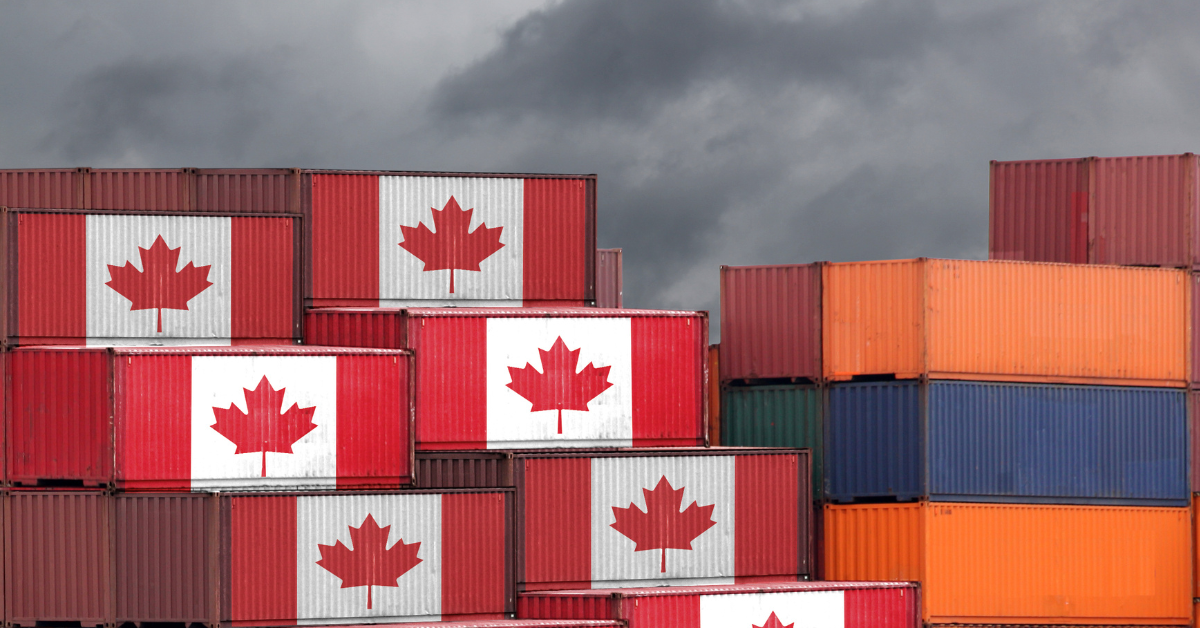The highly anticipated 2021 Federal Budget was delivered by Canada’s Deputy Prime Minister and Finance Minister Chrystia Freeland on April 19, 2021 (“the Budget”). The first budget in two years aims to help Canada recover from the COVID-19 pandemic and may bring key elements to an upcoming election as the minority Liberal Government will require the support of another political party before the measures are passed into law. The budget expects a deficit of $354.2 billion for 2020-21 and forecasts a deficit of $154.7 billion for 2021-2022. The budget did not change the Federal personal or corporate income tax rates. While the Budget did include expected items like Federal COVID-19 Support for businesses, more information on the digital services tax and a plan for a national childcare program, some rumoured items like an increase to the capital gains tax and a National Pharmacare plan were not introduced.
This overview will review the corporate and personal measures relevant to our clients as well as providing a brief list of other relevant proposals. If you have any questions about how the Budget may impact you or your business, please reach out to your Bateman MacKay LLP Business and Tax Advisor.
Highlights
- Canada Recovery Benefit (CRB), Canada Emergency Wage Subsidy (CEWS) and Canada Emergency Rent Subsidy (CERS) and related programs will be extended
- Canada Recovery Hiring Program (CRHP) introduced
- Ability to immediately expense 100% of many capital asset purchases
- Corporate Tax Rate on zero-emission technology and manufacturing will be halved
- Disclosure requirements for aggressive tax planning and filing positions will be expanded
- A 1% tax on the value of vacant or underused real estate owned by non-Canadian, non-residents
- New tax of up to 10% on the purchase of luxury vehicles, aircraft or boats
Corporate Income Tax Measures
- Canada Emergency Wage Subsidy (CEWS)
- CEWS Extended from June 5th to September 25, 2021
- Phase-out begins after July 3rd when the subsidy rate and maximum benefit will decline and only employers with more than a 10% decline in revenues will be eligible. See here for a full chart on the proposed phase-out schedule.
- CEWS for Furloughed Employees continues until August 28, 2021.
- Publically listed corporations must repay wage subsidy amounts received for a qualifying period that begins after June 5, 2021, if the aggregate compensation for specified executives during the 2021 calendar year exceeds that of the 2019 calendar year.
- Canada Emergency Rent Subsidy (CERS)
- Parallels CEWS with an extension from June 5th to September 25, 2021.
- Phase-out begins after July 3rd, when the subsidy rate declines and only employers with more than a 10% decline in revenues will be eligible.
- Lockdown Support extended to September 25, 2021, at the current rate of 25%. See here for a full chart on the proposed phase-out schedule.
- Similar to a previous change to CEWS, the Budget allows for an eligible entity that purchases the assets of a seller to be deemed to meet the payroll account requirement if the seller met the requirement.
- Canada Recovery Hiring Program (CRHP)
- New program to provide eligible employers with a subsidy of up to 50% of the incremental remuneration paid to eligible employees between June 6, 2021, and November 20, 2021.
- Incremental remuneration for a qualifying period represents the difference between:
- an employer’s total eligible remuneration paid to eligible employees for the qualifying period, and
- an employer’s total eligible remuneration paid to eligible employees for the base period.
- See here for a full chart of rates and reference periods.
- The Higher of CEWS or CRHP can be claimed for a particular period but not both.
Immediate Expensing
- The full cost of “eligible property” acquired by a Canadian Controlled Private Corporation (CCPC) on or after April 19, 2021, may be deducted, provided the property becomes available for use before January 1, 2024. Up to $1.5 million per taxation year is available for sharing among each associated group of CCPCs, with the $1.5 million limit being prorated for shorter taxation years. No carry-forward of excess deductible capacity is allowed.
- Eligible property includes capital property that is subject to the CCA rules .
- Other than property included in CCA classes 1 to 6, 14.1, 17, 47, 49 and 51. These excluded classes are generally those that have long lives, such as buildings, fences, and goodwill.
- Generally, property acquired from a non-arm’s length person, or which was transferred to the taxpayer on a tax-deferred “rollover” basis, would not be eligible.
- Rate Reduction for Zero-Emission Technology Manufacturers
- A temporary measure to reduce corporate income tax rates for qualifying zero-emission technology manufacturers.
- Reduced the tax rate on eligible zero-emission technology manufacturing and processing income to 7.5% on income subject to the general corporate tax rate (normally 15%), and 4.5% where that income would otherwise be eligible for the small business deduction (normally 9%).
- Capital Cost Allowance (CCA) for clean Energy Equipment
- Expanding classes 43.1 and 43.2, which provide accelerated CCA rates, to include a variety of assets used to generate energy from natural sources.
- Mandatory Disclosure Rules
- Broad based disclosure requirements for tax strategies considered aggressive by the Federal government.
- Avoidance of Tax Debts
- Proposes a number of measures to address planning to circumvent the tracing of liability as a result of transferring assets to non-arms length persons for insufficient consideration.
- A penalty is introduced for planners and promoters of tax debt avoidance schemes.
- Other Corporate Measures
- A Federal minimum wage of $15 per hour.
- Extending the Regional Relief and Recovery Fund application deadline to June 30, 2021.
- Increasing the Input Tax Credit (ITC) thresholds to $100 (from $20) and $500 (from $150).
- Application of GST/HST to non-resident vendors supplying digital products or services, shipping goods from Canadian fulfillment warehouses or facilitating short-term rental accommodation in Canada.
Personal Measures
- Tax Treatment of COVID-19 Benefit Amounts
- The option to claim a deduction in respect of the repayment of a COVID-19 benefit amount for the year when the benefit was received, rather than the year in which the repayment was made.
- This measure applies to CERB, CESB, CRB, CRSB, CRCB
- Employment Insurance (EI)
- Extend many of the 2020 temporary EI measures including:
- 420 hour entrance requirement for regular and special benefits with a 14 week minimum entitlement for regular benefits and a new common earnings threshold for fishing benefits
- Simplifying rules around the treatment of severance, vacation pay and other monies paid on separation
- Extending the temporary enhancements to the Work-Sharing program such as the possibility to establish longer work-sharing agreements and a streamlined application process.
- Sickness benefits will increase from 15 to 26 weeks as of summer 2022.
- Extend many of the 2020 temporary EI measures including:
- Other Personal Measures
- Several changes to the Disability Tax Credit (DTC) including the expansion to the definition of mental functions necessary for everyday life and qualifying by undergoing a life-sustaining therapy.
- The Canada Workers Benefit (CWB) will phase out thresholds for individuals without dependent and families and introduce a secondary earner exemption.
- $20 billion over 5 years for a national Early Learning and Child Care program.
- Extending the waiver of interest accrual on Canada Student and Canada Apprentice Loans until March 31, 2023, and doubling the Canada Student Grants until the end of July 2023.
- Providing interest free loans of up to $40,000 to homeowners and landlords who undertake retrofits identified through an authorized EnerGuide energy assessment.
- The GST New Housing Rebate entitles homebuyers of eligible homes to recover 36% of the GST paid on the purchase of a new home.
- Tax on the retail sale of new luxury cars and personal aircraft priced over $100,000 and boats priced over $250,000 effective as of January 1, 2022.
Other Relevant Measures
- Tax on Unproductive Use of Canadian Housing by Foreign Non-resident Owner
- 1% tax on the value of vacant or underused real estate owned by non-resident, non-Canadians beginning in 2022.
- Digital Services Tax (DST)
- 3% tax imposed on revenues generated from online marketplaces, social media, online advertising and the sale or licensing of user data for businesses with global revenue of $750 million and Canadian revenue of more than $20 million.
- Restrictions on the deductibility of interest paid to non-arm’s length foreign entities to a fixed ratio of “tax EBIDTA” (earnings before interest, depreciation, tax and amortization), with exceptions for some CCPCs, and groups of Canadian entities whose aggregate net interest expense does not exceed $250,000.
- Hybrid mismatch arrangements which take advantage of differences in the income tax treatment in different countries, such as situations where the same expense can be deducted in multiple countries, or a deduction is available in one country which is not taxable, within a reasonable period of time, in the other.



